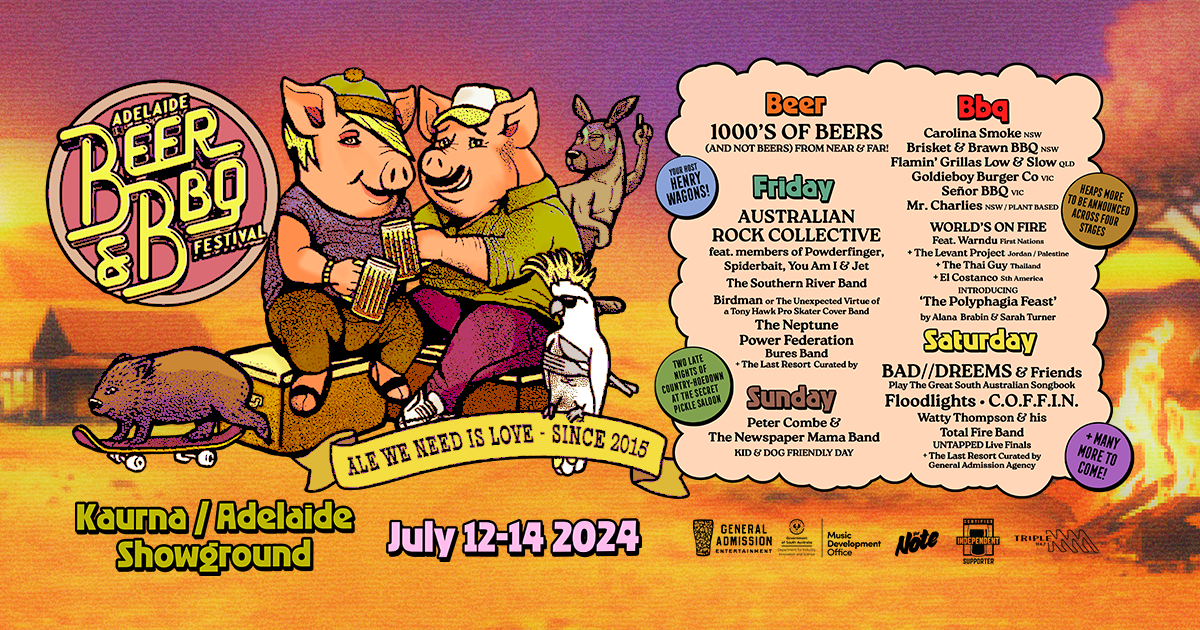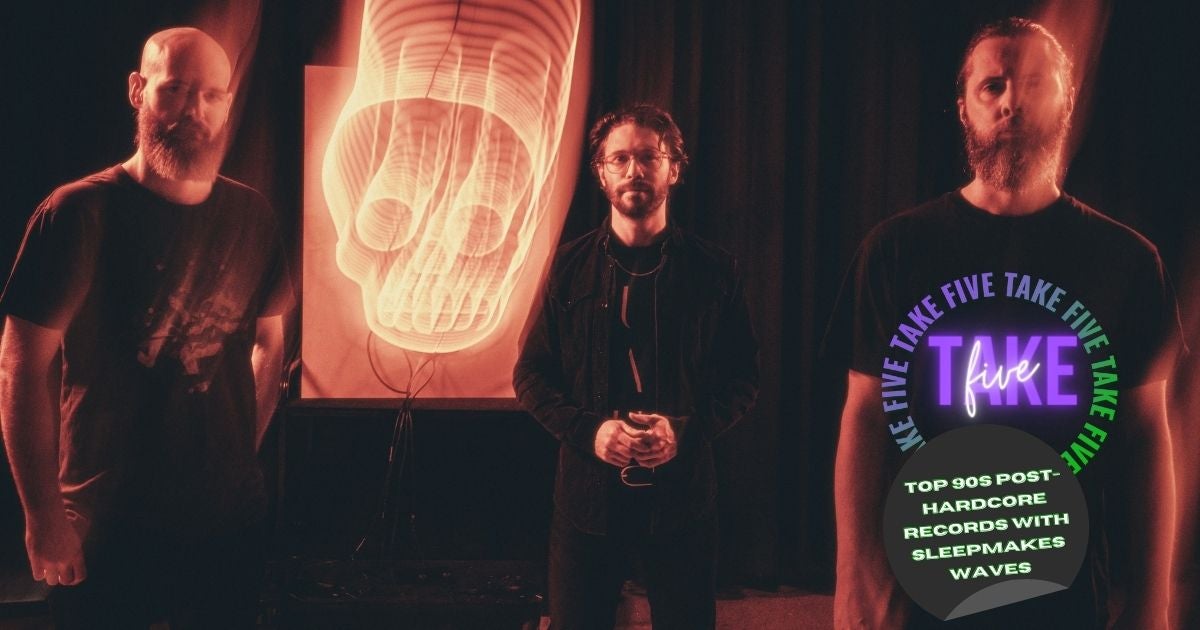"I'm always wary of trying to beat people over the head with a big 'message stick'," says J Willgoose Esq, leader of Public Service Broadcasting. In the case of 'Every Valley', the record's inner narrative is sufficiently powerful to stand alone, obviating the need for overt editorialising or sloganeering from its creators. PSB's third album is a concept piece about the rise and fall of the South Wales coal industry.
Public Service Broadcasting formed in London in 2009 when the pseudonymous J. Willgoose, Esq. (whose stage name was adopted in honour of his uncle George Willgoose, who died at Dunkirk) and the mononymous Wrigglesworth teamed up and began to develop an ingenious technique of laying classic cinema clips and evocative excerpts from old Public Information Films from the British Film Institute's archives over sleek, streamlined, Krautrock-inspired instrumental backing tracks. As more than one wag would put it, you've heard of Math Rock: this was History Rock.
Early singles EP ONE and ROYGBIV caused minimal ripples, but when BBC 6Music began giving heavy rotation to The War Room EP in 2012, notably the tracks Spitfire and London Can Take It, Public Service Broadcasting began to connect with a hitherto-unimagined audience who were ready for, and receptive to, PSB's unique fusion of art-rock and social documentary. The Reithian rock of the band's 2013 debut album 'Inform - Educate - Entertain', released on their own Test Card Recordings label, consolidated their signature style, and took the duo to No.21 in the charts. Its successor, the self-explanatory 'The Race For Space', fared better still, reaching No.11 in 2015 and propelling the band to a level where they were able to fill Brixton Academy, as immortalised on the 2016 concert recording 'Live At Brixton'.
'Every Valley', the band's third studio album (and first since signing to Play It Again Sam), is released on Friday 7 July. Its narrative, though more localised than the grand, sweeping topics of the grand, sweeping currents of the Second World War and the Space Race, is no less dramatic. The story of the South Wales coal industry is one of spectacular success and tragic decline. Welsh coal was the engine of the British Empire: a hundred years ago, it is said that there were more millionaires on the floor of the Cardiff Coal Exchange than the London Stock Exchange. On 21 April 2017, Britain had its first-ever coal-free day, in terms of energy production, since the Industrial Revolution. The tale of the intervening century, in the Welsh valleys, is one of pride, resilience, betrayal, false promises, bitter conflict, and occasionally, like diamonds in the anthracite seam, the slightest glimmerings of hope.
"It's not always easy to say why the kernel of an idea strikes you", Willgoose explains. As the campaign for the previous album drew to a close, he'd been casting round for what else the BFI had in their archives, and came across a multitude of National Coal Board material. At first, he was unsure as to how he could convert it into an appealing piece of work. "But it got into my head, and it was bubbling away. The strength of the community in South Wales, and the geography of the place, suggested it would lend itself to focussing a bit more tightly. I didn't know much about coal mining full stop, or about the Strike (of 1984-85). I think I was 2 when it started. But obviously I'm aware of the reverberations, which are still being felt in the present day."
'Every Valley' may be about industrial decline in South Wales, but Willgoose believes it is analogous to many other places. "It tells that specific story but I hope it tells it in a way that's applicable to industries all over the western world and possibly beyond, in the way that the Industrial Revolution generated these communities that were so dependent on one particular industry, and what happens to that community when you remove that industry from it, and where that leaves us now."
Finding the present-day reverberations in stories from the past is central to PSB's intent. "From the very start, it's never been about nostalgia for me. And where the lines of interest are drawn is in bringing things up from the past which throw the present into relief, and tell you something about the similarities or differences between the two. In the early days we did that in a slightly more kitsch, tongue-in-cheek way, but as we've gone on, we've become more serious about the potential of that, using the past to tell us something about the present. That's the nature of history."
The album was recorded in January in Ebbw Vale, the former industrial town that was once the heart of the steel, and before that, coal industries. Willgoose had already visited the area multiple times in 2016 for reconnaissance and research, including a memorable week-long stay in a Premier Inn in Aberdare. "With a topic like this, and with people who are still so engaged in it, and still so raw to so many people, the idea of just creating it remotely and not even dipping a cursory toe in the waters felt a bit wrong." When it came time to record the album itself in situ, Willgoose says: "Every morning I'd walk the dog from Tredegar to Ebbw Vale and you did notice how much litter and dog mess there was, and the whole place did feel kind of run down, despite the massive investment and new developments."
Willgoose conducted his own interviews with people directly involved in the Miners' Strike, including the secretary and caretaker of the local branch of the National Union of Mineworkers, the latter of whose voice appears on the album. This formed just one element in "the broadest pool we've had to date" in terms of PSB's source material. Firstly, of course, there were the National Coal Board films at the BFI, many of them never before transferred to digital: "There was," Willgoose remembers, "a lot of watching old film and lacing it up." Other sources included independent documentary The Welsh Miner, and audio tape from the South Wales Miners' Library at Swansea University, recorded by Dr Hywel Francis in the strike's immediate aftermath with many of the key players. "We've unearthed - no pun intended - a lot of stuff that hasn't seen the light of day in a while, and shining a light on relatively unexposed areas of it."
Every Valley, the album's title track and opener, begins with a highly lyrical voiceover from a British Transport film from 1957 of the same name, which, Willgoose later discovered, is in turn drawn from Handel's Messiah ("every valley shall be exalted"). "What I like about it," Willgoose explains, "is that it doesn't romanticise the landscape as being this beautiful unspoilt land. It talks about the grimy, frowning hills. And if you've seen them in certain inclement weather conditions, you know where he's coming from. Which is a foreshadowing of what's to come." the track also features the instantly familiar voice of Richard Burton, rhapsodising in a Dick Cavett interview about how highly-regarded the miners were in his native community of Neath ("Everyone in my village wanted to be a miner, the kings of the coalface, the lords of the underworld..."). "And it's delivered in a way that only he can do", says Willgoose. "His voice, using that as an instrument, was a privilege in itself."
It was James Dean Bradfield of Manic Street Preachers who suggested the Burton quote, and Bradfield's own voice appears on Turn No More. For Willgoose, Bradfield appearing on a Public Service Broadcasting record is a particular thrill: the Manics' use of samples on 'The Holy Bible' was a formative influence on PSB, and Willgoose listened to it every day on the way to school between the ages of 15 and 18 ("I probably wasn't the happiest late teenager...") The collaboration came about when PSB supported the Manics on tour in 2016, and Willgoose summoned the courage to corner him. "It was a very hurried corridor moment at the Swansea stadium gig, and he seemed up for it." On the track, Bradfield sings lines from Idris Davies' poem Gwalia Deserta, which Willgoose had discovered at the National Coal Mining Museum in Wakefield. "It instantly reminded me of The Wasteland in terms of the structure, the unorthodoxy of it, and the length. It was written in the Thirties in the aftermath of the Great Depression, but it's relevant both to the Eighties and also to the present day. It was something that James knew well, and he was quite tickled by the idea. He said 'It's taken an English boy to make me sing 'Gwent' on a record...' He was quite amused by that." Willgoose sees the presence of Bradfield, who hails from the mining community of Blackwood, as a vote of confidence. "For someone who is so closely identified with that area, and who grew up through all that, being willing to engage with us, and almost kind of say 'Don't worry about these guys, they're alright', was an immense privilege as well."
It wasn't the only de facto vote of confidence from valleys voices. Take Me Home, an Edwards & Hand folk song from the Seventies, is sung by Ebbw Vale's own Beaufort Male Choir, whose forty-strong membership include former steelworkers and miners. "Maybe some people find it a bit hammy", says Willgoose of the song's sentimental lyrics, "but I find it quite a genuine and sincere piece of work. They just sang it unaccompanied. I went to a couple of rehearsals, and it was quite lively, a lot of chat, and it was very interesting to be a fly on the wall. You're drawing upon a whole cultural history when you use people like that. The rich history of Welsh choirs, for one, let alone their personal involvement in industry."
Indeed, Willgoose found the people of South Wales very willing to give the album their seal of approval. "I was impressed and heartened by the fact that whoever I spoke to about the record and my reasons for making it, there wasn't the remotest hint of a shut-down facade, of 'Who are you, this outsider, telling our story? This is our story!' There wasn't any of that. There was a wall of enthusiasm, if anything."
A further Welsh collaboration appears on the song You And Me, a Welsh language duet between Lisa Jen Brown from the band 9Bach, whose voice Willgoose had first been struck by on Guy Garvey's 6Music show, and Willgoose himself. "If you're making an album about Wales, it would be a shame - almost a crime - not to include some actual Welsh language. She didn't just do a direct translation but rewrote it and made it work better in the native language, and changed the meaning a bit so that it has other resonances that a non-native speaker would never be able to get by whacking it into Google Translate." The track is the first time Willgoose's own voice has ever appeared on a PSB record. "Other singers kept falling through and we were running out of time, and it ended up being 'Bloody hell, I'm going to have to do this myself'. I hate singing, I don't like listening to the sound of my own voice, and I just kept it simple. If you'd told me five years ago that I'd be releasing an album with me singing Welsh on it, I'd have thought something's gone very wrong here..." The track is also a nod, Willgoose admits, to David Bowie, whose Five Years inspired its drumming. "It's not the exact same pattern but it's got the spirit of it, and starting with a fade-up on the drums and ending with a fade-out is certainly a tribute. It came together in the aftermath of David Bowie dying last January. Which was a surprisingly moving event, in that I was surprised by how much I was affected by that."
Guest voices, both present-day and archival, proliferate on 'Every Valley'. The first track to be made public was the single Progress, featuring the voice of Camera Obscura's Tracyanne Campbell, and also documentary dialogue. "I used the quote 'These men look the same as they've always looked, and before your eyes they're changing', because it said something not just about the mechanisation of the industry, and the effect that had on the workers, but also something about the band. In terms of changing, and keeping going. Not standing still, basically."
The blissful, utopian feel of Progress contrasts starkly with the album's most apocalyptic moment, All Out, which captures the chaos and fury of the strike. "All Out is our expression of truest anger to date," Willgoose agrees. "There were things happening in the world and in personal life which made me quite angry and it was good to get that out. The goal with that was to reflect the anger and the chaos and the tumult of the time. And the ugliness, because conflict is never pretty. To try and get some of that out, and make it an assault, almost. I kept saying to the guys, 'I want the speaker to almost be exploding. Push everything into the red.'"
On They Gave Me A Lamp, however, featuring the instrumental group Haiku Salut, the silver lining of the strike begins to glint through the darkness. "On the surface, it's not the most positive record. There's no getting away from the fact that there's a sad ending in terms of the mining industry in South Wales, because there IS no mining industry in South Wales. There are nuggets of hope within it, though. They Gave Me A Lamp was a case of trying to see what positive things came out of the strike. And the great political awakening among the women's support groups, women who'd previously felt in the shadow of and in servitude to their husbands, literally coming out of the kitchen and assuming a more active role in life and in politics, can only be a good thing." Willgoose cites the political career of Sian James, whose involvement in miners' support groups led her to become a Labour MP, as an example. "We do have a lot of younger fans, and if they can listen to a woman talking about how she managed to get over these barriers that her gender has placed in front of her, and not take no for an answer, it's a powerful message to spread. Certainly with all the regressive elements that are currently pushing against that, especially on the other side of the Atlantic, it felt important to do."
There is even humour to be found, albeit of the bleakest and most darkly ironic kind. People Will Always Need Coal begins with a genuine recruitment advert from the 1970s, depicting an absurdly glamorous vision of life as a miner, followed by an authoritative voice assuring the listener that there is enough coal to last another 400 years. "I looked at some of the recruitment material from the time," Willgoose smiles, "and some of the claims they made have turned out to be, shall we say, slightly overstated. This gloriously rosy future that they're painting for the industry. In the advert that starts the song, the miners are drilling underground and then they're in the pool with bikini-clad women and champagne everywhere. It's extraordinary. But it only draws into sharper relief what was about to hit. The narrative that these people were sold at the time. I guess it was a Labour government, and they were still planning on using coal. And to go from '400 years more' of this kind of industry to, not ten years later, the strike and the death of the industry is remarkable."
It's this sense of betrayal, Willgoose believes, which explains the fact that Ebbw Vale voted more strongly for Brexit than any other part of Wales. "It did seem that there was a direct link between the breaking of that community and the breaking of the trust that that community would have placed in the politicians of the day. The running down of industry, the lack of opportunity, the lack of hope for young people, and then this two fingers to the establishment that Brexit probably became. And the sad thing is that they ironically ended up handing power to people who were even less concerned about their welfare than the people who broke the industry at the time."
The band will perform two album launch shows in Ebbw Vale itself, in the exact spot where the record was made. "It's going to be quite emotional," Willgoose predicts, "because it's the very room we recorded the album in. We took over this great hall, and set up this mobile recording studio. I can't think of any other instances where a band has recorded an album in a room, then done two gigs in that very room, open to the public. It's an important thing to do, given what the album's about, to be going back into that community, and not just doing a London launch night and being like, 'See you later, guys'. And it'll be good to see some of the locals there, not just people we've dragged down to South Wales."
And the dreaded 'message stick', Willgoose promises, shall remain unwielded. "What I've always loved, in music or film or literature, is when you're allowed to find your own path through it and your own meaning. With this one, there's obviously a political message at the heart of it, but barring a couple of explicitly political lines on All Out, we've stepped back, without being too hectoring about it, and allowed it to speak for itself."
And Public Service Broadcasting have never made a record which speaks as powerfully and eloquently as 'Every Valley'.
Strip of Cleeve at Oxford Art Factory
Thu 9 May 2024, 7.00pm | Oxford Art Factory, Sydney, NSW
Get TicketsKirin J Callinan - If I Could Sing Australia Tour 2024
Sat 11 May 2024, 7.30pm | Oxford Art Factory, Sydney, NSW
With Special Guests more »
Get Tickets




.jpg)